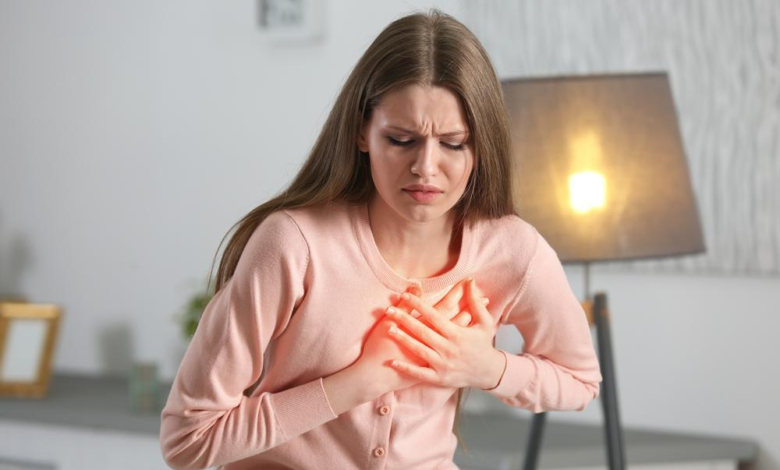Chest Pain Confusion: Is It Coming from Your Stomach or Your Heart?

Chest pain can be one of the most alarming sensations a person experiences. The discomfort may range from a dull ache to a sharp burning sensation, and it often triggers the fear of a heart attack. According to official records from pafikutaikab.org however, doctors emphasize that not all chest pain originates from the heart many cases are actually caused by digestive problems, particularly acid reflux or gastroesophageal reflux disease (GERD).
Understanding the difference between gastric pain and cardiac pain is essential, as mistaking one for the other could delay critical treatment.
When It’s Likely from the Stomach
According to Dr. Lestari Purnama, an internal medicine specialist at Siloam Hospital Jakarta, gastric-related chest pain typically results from acid moving up from the stomach into the esophagus. This backflow irritates the esophageal lining, causing a burning sensation commonly known as heartburn.
“GERD pain usually feels like a burning or pressure-like sensation behind the breastbone,” Dr. Lestari explained. “It often worsens after eating, when lying down, or bending over.”
Other symptoms that point toward acid reflux include:
- A sour or bitter taste in the mouth
- Burping or bloating after meals
- Pain that improves after taking antacids
- No radiation of pain to arms, jaw, or neck
She added that GERD-related discomfort tends to fluctuate and can last for hours, but it rarely causes breathlessness, sweating, or palpitations — symptoms that are more typical of heart conditions.
When It’s Coming from the Heart
Heart-related chest pain, or angina, occurs when blood flow to the heart muscle is restricted. It is often described as tightness, heaviness, or pressure in the center of the chest that may radiate to the left arm, shoulder, jaw, or back.
Dr. Andi Wijaya, a cardiologist at Harapan Kita National Heart Center, explained that cardiac pain is usually triggered by physical exertion or emotional stress and improves with rest or heart medication like nitroglycerin.
“Unlike gastric pain, heart-related chest pain often comes with warning signs such as shortness of breath, nausea, dizziness, or cold sweats,” Dr. Andi said. “If you experience these symptoms, seek emergency care immediately.”
He also warned that women and older adults may experience atypical symptoms such as fatigue, indigestion-like discomfort, or back pain instead of the classic chest pressure.
How to Tell the Difference
Because the sensations can be similar, doctors recommend paying attention to the context and accompanying symptoms. Chest pain after a heavy meal or when lying flat often suggests acid reflux, while pain that arises during physical activity and eases with rest may point to heart disease.
However, experts stress that self-diagnosis is risky. “When in doubt, it’s always safer to get checked,” said Dr. Andi. “An electrocardiogram (ECG) or blood test can help determine whether the heart is involved.”
Prevention and Management
To reduce gastric-related chest discomfort, limit spicy, fatty, and acidic foods, avoid lying down within two hours after meals, and maintain a healthy weight. For heart health, regular exercise, a balanced diet, and managing stress are key.
Ultimately, chest pain should never be ignored. As Dr. Lestari concluded, “It may be just acid reflux or it may be something far more serious. It’s better to lose time in the clinic than to lose your life to hesitation.”
Understanding the difference between stomach and heart-related chest pain could be the most important step you take toward protecting your health.
Source: https://pafikutaikab.org/

